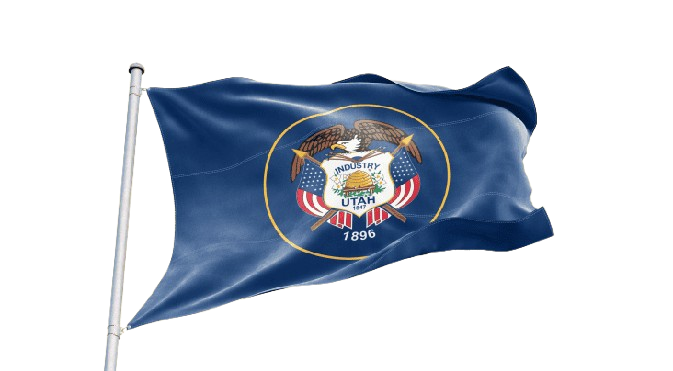The Utah AI Act's Introduction and Enactment

Significantly advancing state-level AI legislation, the Utah governor signed the Artificial Intelligence Policy Act – known as the Utah AI Act – into law on March 13, 2024. Effective May 1, 2024—less than two months after its passage – the law places Utah as a national leader in establishing standards for the use of generative artificial intelligence, especially as the federal government and the European Union keep evolving their individual regulatory strategies.
Directly impacting private-sector companies, particularly those already governed under Utah’s consumer protection laws or professional licencing systems, the Utah AI Act emphasizes on openness in the use of generative artificial intelligence. Businesses within its purview have to move quickly to guarantee compliance.
Generative Artificial Intelligence Defined
The Utah AI policy defines “generative artificial intelligence” as any artificial system educated on data that interacts with people via text, audio, or visual communications and produces unscripted outputs like those generated by humans, usually with little human supervision. Any machine-based system capable of making predictions, recommendations, or judgments affecting real or virtual surroundings is included under the more general phrase “artificial intelligence.”
Scope of the Utah AI Act
Utah AI law covers businesses run under current consumer protection legislation supervised by Utah’s Consumer Protection Division, including the Consumer Privacy Act and Social Media Regulation Act. It also covers Department of Commerce regulated activities, especially those needing state-issued license or certification, like healthcare, law, and accountancy.
Disclosure Requirements for Generative AI Use
The Utah Artificial intelligence regulation’s two-tiered disclosure requirement for the use of generative artificial intelligence is a fundamental component. Organizations under consumer protection legislation must disclose generative AI use when interacting with people when a user questions whether they are interacting with AI instead of a human. In such situations, the business has to offer a clear and obvious disclosure verifying the usage of AI.
By contrast, if generative artificial intelligence is used in the delivery of services linked to controlled professions, the Act mandates proactive and obvious notification at the beginning of the contact. Should the communication be verbal, the disclosure has to occur at the start of the discussion. For textual electronic exchanges, the AI system has to introduce itself first before any meaningful conversation starts.
Enforcement Powers and Penalties under the Utah AI Act
- The Utah Division of Consumer Protection is empowered to enforce compliance with the Act.
- It may initiate judicial actions to seek various remedies, including:
- Injunctions to stop non-compliant activities.
- Profit disgorgement from unlawful AI-related practices.
- Restitution to consumers harmed by violations.
- Recovery of attorneys' fees and investigative costs.
- Administrative penalties of up to $2,500 per violation.
- Additional penalties:
- Violators of court or administrative orders related to the Act can be fined up to $5,000 per breach.
- These penalties are designed to impose significant financial consequences for noncompliance.
Criminal Liability for AI-Related Offenses
The Utah AI Act introduces Section 76-2-107 into Utah’s criminal code.
Establishes criminal responsibility for individuals who:
Use generative AI to commit a crime.
Encourage or direct generative AI to participate in illegal activities.
Prevents evasion of legal responsibility by blaming AI systems for criminal actions.
Mirrors existing criminal liability standards for offenses involving unmanned aircraft systems.
Establishment of the Office of Artificial Intelligence Policy
The Utah AI Act also establishes the Office of Artificial Intelligence Policy in the Department of Commerce. Administering the AI Learning Laboratory Program, advising stakeholders on possible regulatory approaches, annual reporting to the Business and Labor Interim Committee on the laboratory’s activities, and setting procedural guidelines for the program are all responsibilities of this office.
Program for AI Learning Laboratories
Introduced under the Utah AI Act, the AI Learning Laboratory Program seeks to investigate the advantages, hazards, and wider consequences of artificial intelligence technologies to guide next regulatory approach. It also assesses the efficacy of current and suggested artificial intelligence rules and supports AI growth inside Utah.
Companies might apply to join the program and maybe sign a Regulatory Mitigation Agreement, which provides modest exemptions from certain state rules during their involvement – operating much like a regulatory sandbox allowing controlled testing of creative technologies. To discover how Utah’s new AI regulations impact mental health chatbots click here.
Guidance on Compliance for Affected Companies
The law’s fast implementation schedule calls for quick action for businesses operating in Utah, particularly those offering professional services needing licencing or consumer-facing artificial intelligence tools. While professionals utilizing artificial intelligence in their practice have to guarantee suitable and timely disclosures, public-facing generative AI systems have to be able to recognise themselves as such upon request. Following these updated guidelines will be crucial not only to preserve legal compliance but also to prevent major financial and reputational consequences.
Conclusion
Particularly in the area of generative artificial intelligence, the Utah AI Act is a groundbreaking first move in state-level control of artificial intelligence. The Act aims to strike a balance between innovation and responsibility by means of clear disclosure policies, enforcement measures, and institutional structures such the Office of Artificial Intelligence Policy and the AI Learning Laboratory Program.
To prevent fines and promote responsible artificial intelligence use, companies running under Utah’s consumer protection laws or professional licencing systems must quickly conform to these standards. Utah’s proactive approach might be a guide for other states negotiating the complicated crossroads of technology, ethics, and law as federal and international artificial intelligence rules emerge.
Try Our AI Governance Product Today!
Seamlessly integrate governance frameworks, automate policy enforcement, and gain real-time insights—all within a unified system built for security, efficiency, and adaptability.